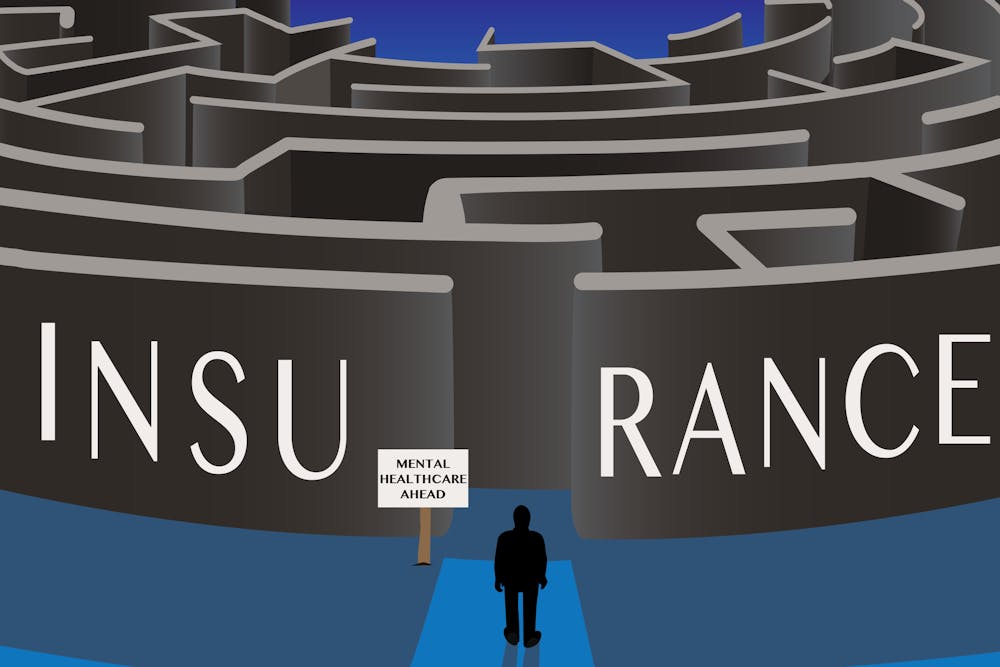Ciara Zachary, an assistant professor of health policy and management at UNC, said even providers that accept a patient's insurance may have long waits for appointments or may not be taking new patients. She said these barriers may motivate patients to look outside their insurance network for providers, which is often more expensive.
Zachary said that when health care providers leave an insurance network, it can be disruptive to patients, as mental health providers often have formed relationships with their patients and understand their personal medical histories.
In a study from the National Library of Medicine released in October 2021, 21 percent of participants reported that at least one practitioner had left their insurance plan’s network in the past three years.
“That breaks up the continuity of care, which could really impact how someone goes about their everyday life,” Zachary said.
When she turned 21, UNC senior Nyami Aghedo lost access to her parents’ insurance and transitioned to UNC’s student health care plan, and she is now unable to receive the same mental health care.
Like Doherty, when Aghedo was looking for a therapist, she said she had to spend time doing research and making phone calls to find a provider that was covered by her parents’ insurance.
Aghedo said she could hypothetically go to UNC's Counseling and Psychological Services, which is covered by her school insurance plan, but said she thinks there are barriers that would make school services difficult to access. CAPS offers brief therapy, but refers patients to community providers for longer term or specialized therapy needs.
The Mental Health and Substance Use Disorder Parity Task Force, established in 2016 as part of the Obama Administration’s efforts to increase high-quality behavioral health care, sought to expand education and awareness about the right to equal mental and physical care services.
For people with disabilities, accessing insurance to cover mental health care can pose a unique set of barriers. Nan Allison, a paralegal-advocate for the Charlotte Center for Legal Advocacy, said that while people with disabilities are eligible for Medicaid, the process to be legally deemed disabled, and therefore Medicaid-eligible, could take years.
Allison said it is difficult for people dealing with a mental illness to go through that process, and those who get denied from Medicaid may not have the means to appeal the decision.
“Dealing with the bureaucracy is a challenge,” she said.
Allison also said that parents who are ineligible for Medicaid due to their income often lack access to mental health care for their children. Many families wait months to get an appointment with a therapist, and accessing a child psychiatrist is almost impossible.
To get the day's news and headlines in your inbox each morning, sign up for our email newsletters.
According to the Centers for Disease Control and Prevention, nearly 1 in 5 children have a mental, emotional or behavioral disorder — yet only about 20 percent of those children receive mental health care from a provider.
In terms of mental health care, Allison said Medicaid often provides more comprehensive services than other insurance plans. She said she has worked with many people who want Medicaid, but do not meet the financial criteria to access it.
One benefit of Medicaid is access to six Local Management Entity/Managed Care Organizations — organizations that coordinate services for North Carolina Medicaid beneficiaries seeking treatment for mental health disorders, substance use disorders, intellectual/developmental disabilities or traumatic brain injuries.
LME/MCOs provide services such as emergency care, free clinics for assessments and residential care. Allison said, though, that many Medicaid users are unaware of these resources or struggle to find time to coordinate with the facilities.
“A lot of people with mental health conditions just find that challenging and are unable to see the follow through,” she said. “So, by nature of the condition, it makes it harder to access the things that are available.”
@torinewbyy | @mkpolicastro
@DTHCityState | city@dailytarheel.com



